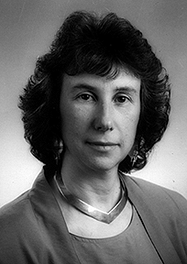








 Classical music and politics. For most of us here at Oberlin, the two disciplines seem to be completely different: one is the expression of an aesthetic, the other an examination of the world around us. As far as most people are concerned, they are completely different; and the transcendence of classical music should never be tainted by the corruption and pettiness of politics and the composer's personal opinion.
Classical music and politics. For most of us here at Oberlin, the two disciplines seem to be completely different: one is the expression of an aesthetic, the other an examination of the world around us. As far as most people are concerned, they are completely different; and the transcendence of classical music should never be tainted by the corruption and pettiness of politics and the composer's personal opinion.
But as Leta Miller, Professor of Music at University of California at Santa Cruz will demonstrate in her lecture next week, the composer Lou Harrison has throughout his long career persistently challenged the notion that politics and classical music should not mix. Considered one of the twentieth century's foremost experimental composers, Harrison ranks in the circles of other experimental composers such as Henry Cowell, Charles Ives and John Cage.
Alongside his innovative music, Harrison is one of the few composers within the classical music genre to speak out against social injustices such as homophobia, following through to his harsh critiques of atomic power, unnecessary warfare, and America's aggressive foreign policy. Starting from an examination of his outspoken stance on gay rights, through to his vehement anti-war protests, Harrison has consistently proven his commitment to politics within the musical aesthetic.
Miller's talk will survey the political content within his musical career, from his early days until the present, and she will also examine the ways in which he incorporated politics into his music. Harrison's earliest dance compositions, written around 1935, used political content only extra-musically, through his non-traditional use of choreographic subjects and through his titles or dedications of his pieces. However, this soon changed. In 1939, Harrison made his first explicit political statement within a piece, the "Mass to St. Anthony," in which the opening theme includes a cry of anguish, meant to symbolize the suffering of Poland when it was invaded by Hitler that same year.
As World War II progressed, Harrison grew increasingly vocal about his opposition and horror towards the catastrophic events unfolding around him. He began incorporating his protest into the structure of his compositions themselves, choosing to ignore the classical traditional European twelve tone scale which all classical composers use.
Instead, Harrison composed his pieces based on the five tone scale, a feature of the gamelan music of Indonesia, which he was heavily influenced by. His philosophy behind this change was that the twelve tone scale, in music theory, makes equal use of all musical notes, which represents for him a suppression of difference. This mirrored the dehumanizing events occurring in Nazi Germany and all over Europe.
Harrison was also horrified by the atomic bomb attacks on Japan and nuclear warfare as a whole. In his 1963 piece "Pacifica Rond," which consisted of a seemingly peaceful musical tour around the Pacific basin, he included a subtle protest against the atomic bomb. Other pieces at that time involved many bold anti-war messages. For example, "Novo Odo" contains an anti-war Morse code message and his 1968 "Peace Piece #2" includes a vehement anti-Vietnam war text by the Beatnik poet Robert Duncan, and which created an uproar at its premiere.
Harrison's protest continued on through the 1991 Gulf War, which so upset him that he had a compositional block and had to refuse to compose any piece for commissions last year. In fact, despite his prolific career, he only produced one major work that year, entitled "Homage to Pacifica." It also dealt with his frustration with American imperialism.
Besides Harrison's protest pieces, he has produced a variety of experimental work, a great deal of which is based on different world music and celebrates cultural diversity and global harmony. Some examples are his "Peace Piece #1" and "Young Caesar."
Miller is one of the foremost experts on the works of Lou Harrison, both in her scholarly and performance work. She has performed on many solo flute recordings of Harrison's pieces, including her latest CD recording of Harrison's opera Rapunzel, and has written extensively about him.
Miller recently wrote an article about him for the New Grove Dictionary of Music, as well as program notes for several of his performances in New York, including an upcoming celebration of the composer's 80th birthday at Lincoln Center. The material for the lecture is based on her upcoming book examining his career, entitled Lou Harrison: Composing A World (co authored with ethnomusicologist Fred Lieberman). The lecture will be illustrated with slides and unusual recorded examples.
Miller's lecture will take place May 9 at 4:30 p.m. in Room 237 of the Conservatory.
A mix of music and politics: Professor of Music Leta Miller will deliver a lecture next Friday on activist/composer Lou Harrison. (photo by Gary Nelson)

Copyright © 1997, The Oberlin Review.
Volume 125, Number 23; May 2, 1997
Contact Review webmaster with suggestions or comments at ocreview@www.oberlin.edu.
Contact Review editorial staff at oreview@oberlin.edu.